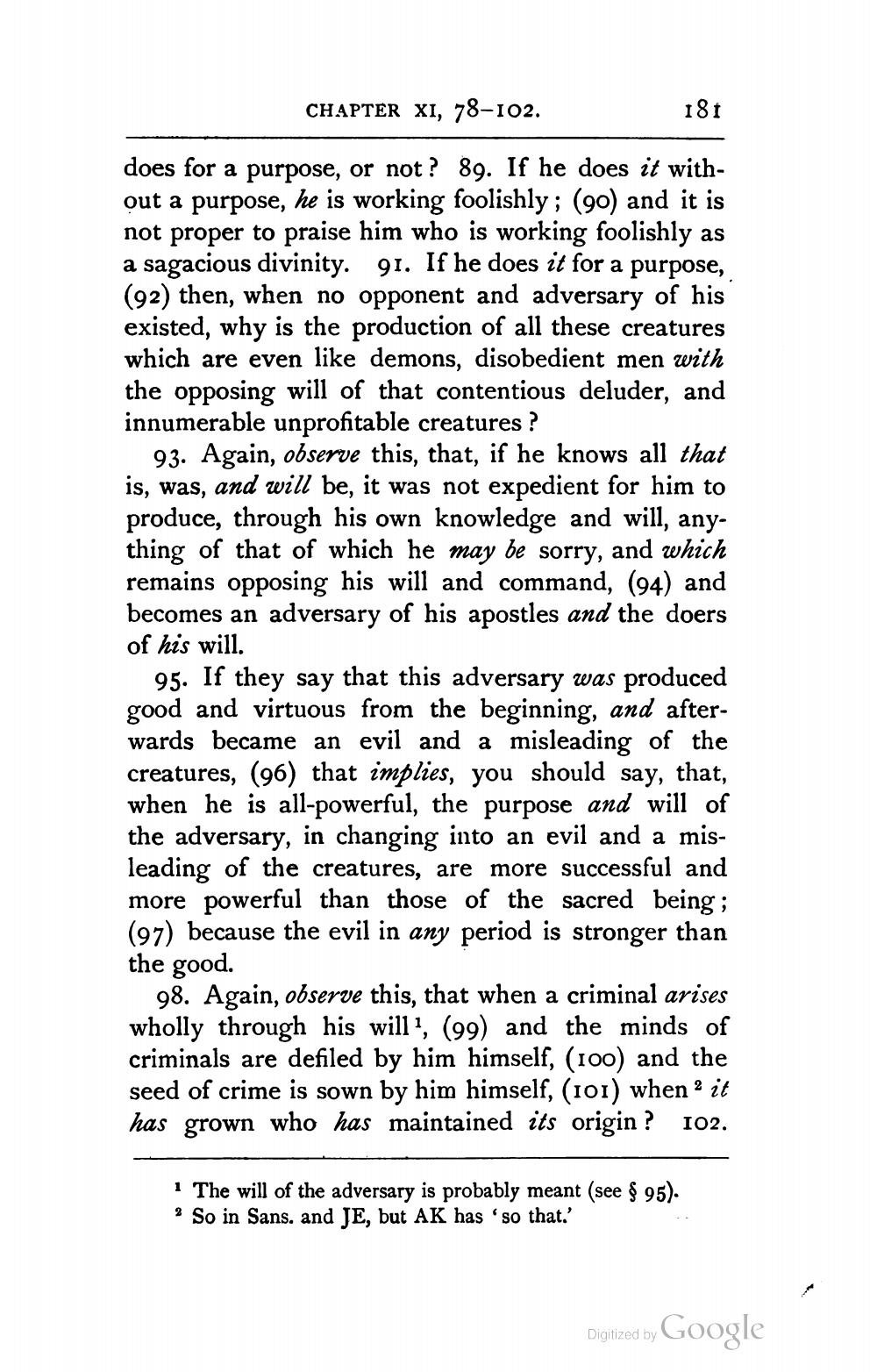________________
CHAPTER XI, 78-102.
181
does for a purpose, or not? 89. If he does it without a purpose, he is working foolishly; (90) and it is not proper to praise him who is working foolishly as a sagacious divinity. 91. If he does it for a purpose, (92) then, when no opponent and adversary of his existed, why is the production of all these creatures which are even like demons, disobedient men with the opposing will of that contentious deluder, and innumerable unprofitable creatures ?
93. Again, observe this, that, if he knows all that is, was, and will be, it was not expedient for him to produce, through his own knowledge and will, anything of that of which he may be sorry, and which remains opposing his will and command, (94) and becomes an adversary of his apostles and the doers of his will.
95. If they say that this adversary was produced good and virtuous from the beginning, and afterwards became an evil and a misleading of the creatures, (96) that implies, you should say, that, when he is all-powerful, the purpose and will of the adversary, in changing into an evil and a misleading of the creatures, are more successful and more powerful than those of the sacred being ; (97) because the evil in any period is stronger than the good.
98. Again, observe this, that when a criminal arises wholly through his will ?, (99) and the minds of criminals are defiled by him himself, (100) and the seed of crime is sown by him himself, (101) when it has grown who has maintained its origin? 102.
· The will of the adversary is probably meant (see $ 95).
So in Sans, and JE, but AK has so that.'
Digitized by Google




